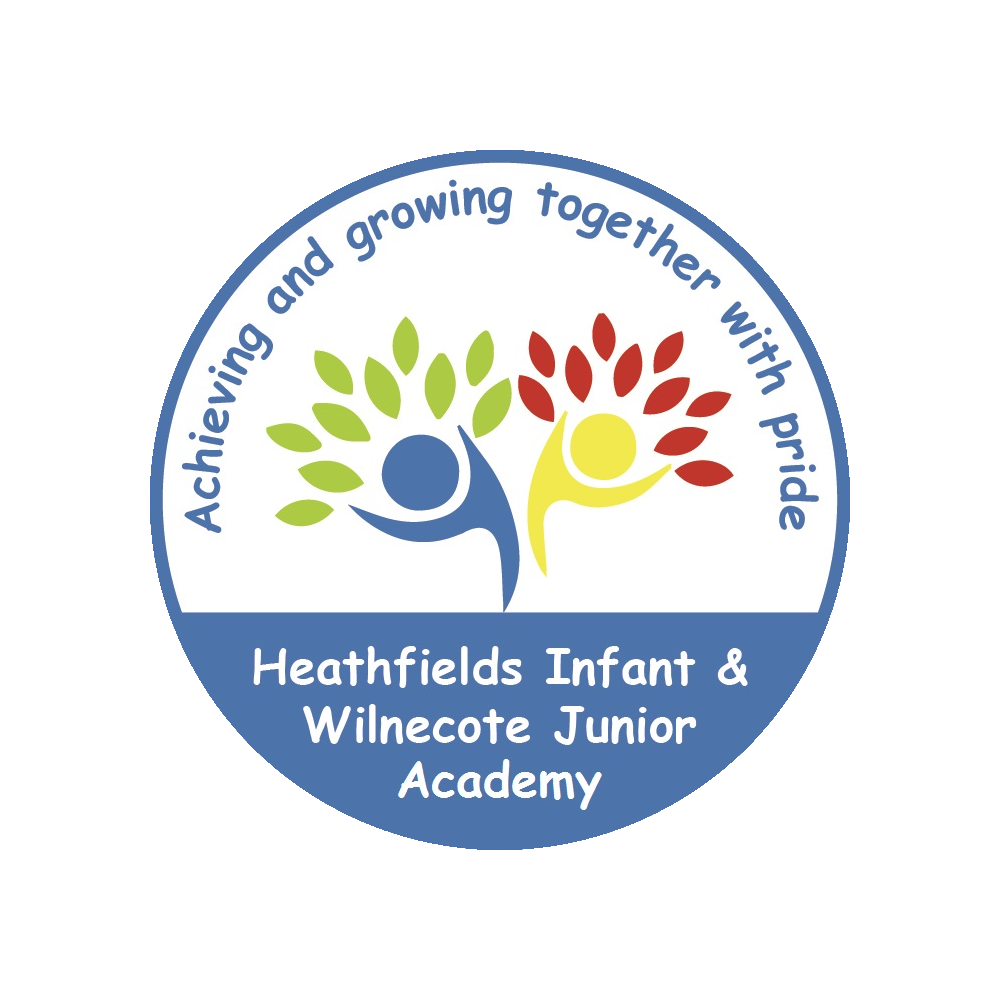Writing KS1
At Heathfields we believe that communication and writing are key life skills. We strive to give children the necessary tools to be able to communicate effectively and creatively through spoken and written language. We encourage children to develop a love of reading by using a range of quality texts and topics which inspire and excite young readers and writers. We believe that developing strong reading skills provides the children with the vocabulary and language needed to write.
To develop our pupils as writers we do the following:
- Ensure that there is a fiction, non-fiction and poetry opportunity each half term (Year 2) In Year 1 we focus more on fiction and some exposure to poetry.
- We encourage children to understand that writing needs an audience and purpose.
- We base our writing lessons around a ‘hook’ book and have a hook day at the start of a unit to engage the children.
- Teach children to write effectively for a range of purposes by writing in a variety of forms- stories, adverts, letters, poems, fact files.
- Encourage children to write for pleasure.
- Show children how to evaluate and improve their own writing, using purple pen to edit.
- Show children how to use KS1 punctuation to make meaning clear to their reader.
The writing process:
- ·Hook day- fun activities linked to the ‘hook’ book to engage the children and look at the features of the new text.
- Read as a reader. This will be listening to and reading our ‘hook’ book.
- Reading a model text, identifying and exploring unfamiliar vocabulary and creating a glossary.
- Orally rehearsing and putting actions to the text.
- Drawing a story map to sequence the story.
- Summarise the text identifying the main parts. Children will be taught to do this by either boxing up the text, or using a planning frame to summarise the text in.
- Writing their own version of the text using the key skill taught. This is over 3 days, to ensure children are applying skills, using new vocabulary and following the structure of the text.
- Publishing their learning and sharing it with their audience.
- Each unit the children learn have a new grammar focus that links closely to the modelled text. During the first 2 weeks of the unit they have stand alone grammar lessons to embed their understanding, and develop the knowledge to apply this to their writing.
Planning
Planning for English is done at three levels:
1. Long Term Plan – A whole year overview ensuring every object on the National Curriculum is covered.
2. Medium Term Plan - A unit will be based on a specific genre and will last approximately 3 weeks.
3. Short Term Plan – A detailed and fully resourced daily plan will be used to teach the week’s lessons.
Planning is completed using the guidance from the new National Curriculum and assessment of children’s prior knowledge. Skills are taught based on a modelled text with an audience to write for, giving the children a purpose to write.
Medium Term Plan:
A medium-term plan will be focused on a genre and will last approximately 3 weeks.
Children will Read as a Reader in order to gain a good understanding of the model text being used and have the language to support writing. They will orally rehearse the text with actions and begin to change it to make it their own. Children will focus on learning the skills they need for this unit of writing and apply it to their own piece of writing successfully.
Year 1 Writing Expectations:
- Write clearly demarcated sentences.
- Use ‘and’ to join ideas.
- Use conjunctions to join sentences (e.g. so, but).
- Use standard forms of verbs e.g. go/went
- Begin to use capital letters and full stops.
- Use capital letters for names and the personal pronoun ‘I’.
- Write a sequence of sentences to form a short narrative.
- Use correct formation of lower case letters.
- Use correct formation of capital letters.
Year 2 Writing Expectations:
- Write different kinds of sentences; statement, question, exclamation, command.
- Use expanded noun phrases to add description and specification.
- Write using subordination (when, if, that, because) and co-ordination (or, and, but).
- Use expanded noun phrases to describe and specify.
- Correct and consistent use of present tense and past tense.
- Correct use of verb tenses.
- Write with correct and consistent use of capital letters, full stops, question marks and exclamation marks.
- Use commas in a list.
- Use apostrophes to mark omission and possession in nouns.
- Write under headings.
- Write lower case letters the correct size relative to one another.
- Show evidence of diagonal and horizontal strokes to join handwriting.
What can be done at home?
- Encourage a love of reading- read a range of text types together.
- Visit a local library.
- Help to write a shopping list.
- Write a letter to a family member.
- Practise year group spellings..
- Keep a daily diary.
- Take our class reading OTTER (Our Time To Enjoy Reading) home to read to. Write about your time with OTTER.
- Listen to the Cbeebies bedtime stories online.
- Write for a range of purposes and using different media - crayons, felts, tec
